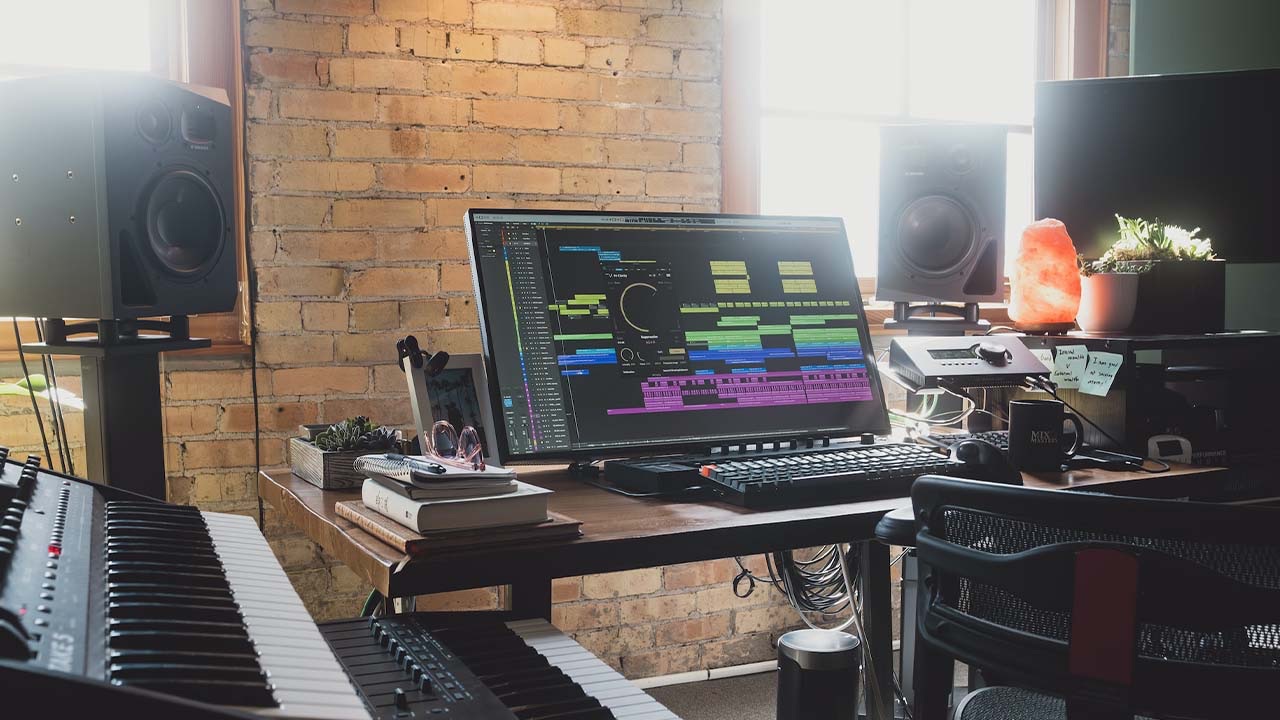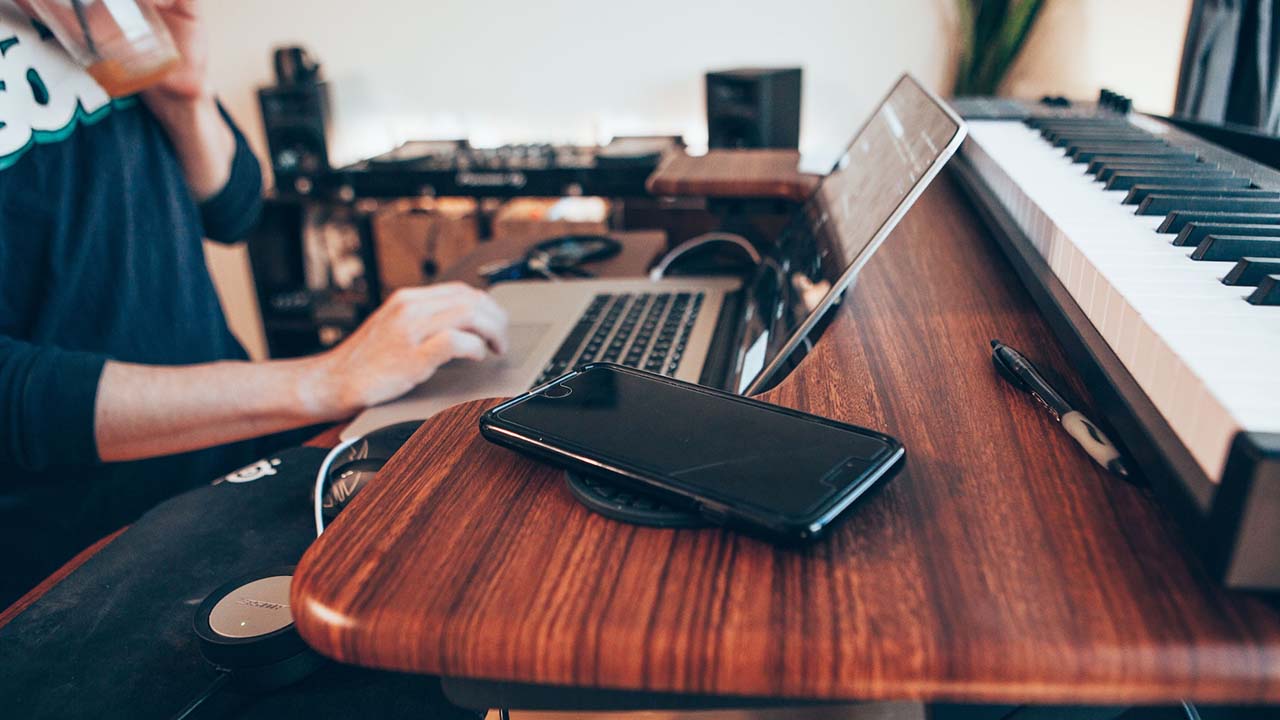Best Way To Learn Logic Pro | 5 Practical Tips
Aug 25, 2023
Thanks to the advancement of the digital world, almost anything is possible with a capable computer. Back then, artists and producers needed access to a studio full of analog gear to create music.
Nowadays, you can have a virtual music studio at your fingertips by installing a Digital Audio Workstation (DAW) on your computer.
Apple’s Logic Pro is a well-known name in the music industry. Thanks to its user-friendly interface, extensive sound and plugin libraries, and powerful production tools, Logic Pro has become one of the world’s most famous DAWs. It’s a favorite both for newbies and veterans in music production.
It is easy for a beginner to feel overwhelmed when starting to learn Logic Pro. The list of tools, settings, and parameters you can control in Logic’s workstation is virtually endless. Because of this, many might feel burnt out after trying to execute their ideas in Logic and not being able to get the results they want.
Like everything, Logic Pro has a learning curve that everyone has to go through before they can create music that sounds ideal. How steep that curve is depends on your perseverance and learning strategies. In this post, I will guide you through 5 steps to help you learn Logic Pro more efficiently.
1. Find What You Want From Logic
Logic offers myriad tools for different purposes, so it is crucial first to figure out what you want to use Logic for; is it music production? Mixing songs? Or do you want to learn how to master music in Logic?
The tools and gear you use as a songwriter are vastly different from what a mixing engineer uses in Logic. I consider myself a generalist in making music, and I write, produce, mix, and master my songs. However, I recommend focusing on each of these aspects one at a time. So, instead of trying to learn everything all at once, ensure you target areas that help you reach your goals.
If you want to release your own music from home, initially, focus on using Logic Pro as a songwriting and music production tool. Later on, you can work on balancing the sounds during the mixing process or making your projects sound industry-standard in the mastering stage.
Many artists prefer focusing on songwriting, creating a rough sketch of their arrangement and instrumentations, and handing their projects to mixing and mastering engineers to make them commercially ready.
On the other hand, many music producers are experts in one area (mixing, for instance). This is an excellent way to make money as a producer.
2. Don’t Overcomplicate Things: Stick To Logic’s Basics

When starting your music production journey in Logic Pro, it is vital to stick to the basics. Sure, there are many fantastic tools and third-party VSTs you can install on Logic Pro. I myself use them a lot in my projects. If you open YouTube, you’ll find many producers promoting different plugin effects, tools, and virtual instruments. While useful, you should always remember that tools cannot replace skill sets. You can’t expect premium plugins to magically turn your songs into Spotify hits.
Installing a bunch of plugins right off the bat will only make you more overwhelmed. I explained in a recent YouTube video why I started music production with no paid plugins.
Logic offers various high-quality plugins and virtual instruments that you can use in your projects. Take your time to familiarize yourself with what tools and sound libraries that come stock with Logic. Then, try experimenting with free plugins for Logic Pro. Ultimately, invest your money into purchasing professional VSTs.
3. Invest In Proper Gear
Though it’s possible to make music only using a computer, investing in essential home studio equipment can take your music production skills to the next level. That doesn’t mean you have to buy everything from the get-go. Research what equipment fits your needs and budget, and slowly build your home studio.
First, I suggest getting high-quality monitoring speakers to hear what you’re making more clearly. You cannot overestimate the importance of having proper outputs when creating music. A decent pair of monitoring headphones would also work wonders. Sony MDR-750 headphones are a solid choice for starters. I have reviewed them thoroughly in another post.
A MIDI keyboard can be a game-changer when it comes to music production in Logic Pro. Opting for an audio interface and a studio microphone can also aid you if you’re recording vocals or acoustic instruments.
You can produce music without knowing how to play any instruments. However, playing instruments helps uplift your tracks and make them sound livelier, even if it is just a shaker. Moreover, you can get a better understanding of music theory and how different intervals work with one another if you play an instrument, which can come in very handy for songwriting and production.
4. Consume: Listen To Music And Find Tutorials

There are two things you’d want to expose yourself to as much as possible when starting to learn music production with Logic: different genres of music and tutorials.
Listen to music from different eras and different styles. Listen to the top charts from the 70s and the 80s all the way up to modern music. Find out how music production has evolved over the years. While it is critical to stay authentic and create music that sounds good to you, no one can deny the importance of getting inspiration from artists you and musicians you value.
Other than that, try to consume as many tutorials and how-to’s about Logic Pro as possible. You can take advantage of countless great sources online for free. As I work on my own music, I frequently upload bits and pieces of what I do in Logic as YouTube tutorials. I recommend checking them out.
Complimentary to free lessons, try a paid course for a more linear approach to learning Logic. Preferably, find someone whose style of teaching is appealing to you. I’ve listed some of the best online schools for learning music production in another post.
5. Produce And Get Feedback
It is critical to avoid obsessing over quality at first. I felt flat initially because I'd put too much time and energy into one production. Nevertheless, aiming for quantity and finishing projects can help you learn much more in the long run.
Let’s be honest here; it is highly unlikely for your first few productions to turn out flawless. So don’t put surgical effort into perfecting only one project. Quality will follow quantity in time, so let that snowball build up. Not only does it boost your learning speed, but it also allows you to track your progress.
Moreover, you can share your projects with others with more experience and get constructive feedback. Show your music to experienced producers and ask how you can improve your tracks.
Final Thoughts: Consistency Is Key
Like any other profession, it takes time to hone your skills as a music producer. It is essential to stay consistent in learning and executing different ideas in Logic to make progress.
Learning music production from home might take some time, but it’s not impossible. Take your time to find the sweet spot between what sounds good to you and the tips and methods you find online.
Lastly, I suggest downloading my Free 6 Pillars To Learning Logic Pro Faster. I cover everything you need to know to kickstart your journey in music production, songwriting, mixing, and mastering with Logic.





